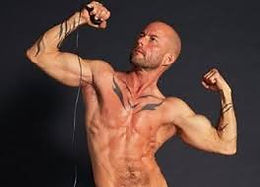
I Teach A Number of Sopomore Inquiry (SINQ) Courses:
Popular Culture
Interpreting the Past
As you might imagine this course explores the fascinating world of Popular Culture from a critical standpoint, teaching students to be critical consumers of Pop Culture as well as creators and curators of their own interventions into Pop Culture.


Liberty Leading the People (1830), by Eugène Delacroix
This course examines the ways in which we understand and construct
histories. As the great American scholar Hayden White argued, history is
never a concrete thing but an INTERPRETATION of artifacts. In his
landmark book The Content of Form, White analyzes the use of narrative
frameworks to construct histories. He argues that all history is, in fact, a
narrative and therefore, by definition, a fiction of sorts. Artifacts can include
written documents, works of art, or even medical and dental records; for
example, what do the accounts about George Washington's false teeth
tell us about him and dental care in general at the time? When we
"interpret the past" we bring our various predispositions to our
understanding. For example, in the 19th Century, scientists made all sorts
of "discoveries" about the various races of mankind and crafted histories
to suit these discoveries. Today we take a much different view, in part due
to late 20th century developments such as the mapping of the human
genome. We now know that "race" is a social construct that does not
really have any significance in the biology of Homo sapiens or modern
humans. My courses tend to focus on the 19th Century as a birthplace of
Modernity.
Global Perspectives: Europe
This course examines the meaning of "European" beginning with the origins of the concept or idea of Europe in antiquity. As a class we then proceed to study some of the events that helped shape the Europe of today as well as leaders who helped form the configuration of Europe as it is today. This is primarily a course about identity and the construction of national and European identities in public spaces through monuments, art, and spectacle.

The Goddess "Europa"
Gender and Sexualities
This course examines the concepts of sex and gender as social constructs based on the mores and beliefs of our culture. We attempt to understand how and why these concepts impact our varied identities and beliefs. How are these constructs disseminated and deployed in our culture?

